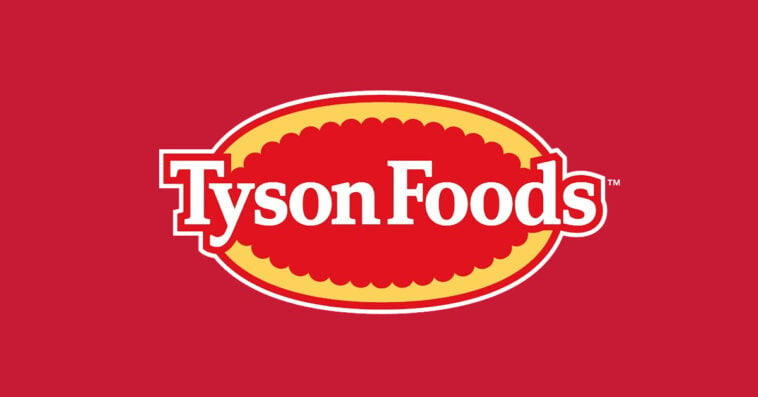As consumers increasingly scrutinize what goes into their food, a major industry player is making a bold move that could redefine the “healthy” landscape. Tyson Foods, a giant in meat processing, is pledging to eliminate high fructose corn syrup and other controversial ingredients from its products, a decision that places the company at the forefront of the “Make America Healthy Again” movement. But what exactly are these ingredients, and why is Tyson’s decision to remove them so significant? This groundbreaking commitment by Tyson is a direct response to growing public concern and government pressure, setting a new standard that other food manufacturers may soon be forced to follow.
Tyson drops controversial ingredients from top brands
Tyson Foods has announced a sweeping commitment to phase out high fructose corn syrup and several other controversial additives from its product lineup by the end of the year. The shift, part of the broader “Make America Healthy Again” movement, will impact well-known brands under its umbrella, including Jimmy Dean and Hillshire Farm.
This move builds on Tyson’s earlier decision to remove artificial colors in May, signaling the company’s intent to position itself as a frontrunner in the clean-label reformulation trend sweeping the food industry. “We continuously review and assess our product portfolio to ensure the highest quality products that meet the needs of consumers,” said Tyson president and CEO Donnie King.
The ingredients Tyson is eliminating—high fructose corn syrup, sucralose, BHA/BHT, and titanium dioxide—are widely used in processed foods to enhance sweetness, extend shelf life, and maintain appearance. However, they’ve drawn increasing scrutiny from health advocates and regulators. High fructose corn syrup has been linked to obesity, type 2 diabetes, and metabolic disorders. Sucralose, while marketed as a zero-calorie sweetener, has raised concerns over its potential impact on gut health and glucose regulation. BHA and BHT, synthetic preservatives, have been associated with cancer and hormone disruption in animal studies, leading to mounting calls for stricter oversight. Titanium dioxide, commonly used as a whitening agent, has been flagged for possible neurotoxic effects and is banned in some parts of Europe.
By cutting these ingredients, Tyson is not only aligning with consumer demand for cleaner products but also positioning itself ahead of possible regulatory crackdowns.
The rise of the ‘Make America Healthy Again’ movement
Tyson’s decision to cut high fructose corn syrup and other additives is part of a larger cultural shift embodied by the “Make America Healthy Again” movement, a campaign gaining momentum under the leadership of Health Secretary Robert F. Kennedy Jr. The initiative aims to reduce the presence of ultraprocessed ingredients in the American food supply, many of which have been linked to chronic health issues such as obesity, diabetes, and cancer.
The movement traces its roots to growing public frustration with food industry practices that prioritize shelf life and cost savings over consumer health. By the early 2000s, mounting scientific evidence had begun to connect chemical preservatives, synthetic dyes, and artificial sweeteners with negative health outcomes. Grassroots campaigns and consumer advocacy groups amplified these concerns, eventually pushing regulators and policymakers to take a harder look at additives once considered safe.
Kennedy has been particularly outspoken about the dangers of high fructose corn syrup, describing it as “a formula for making you obese and diabetic.” His vocal criticism has pressured major food and beverage companies to reconsider their formulations. In a notable example, Coca-Cola announced plans this summer to introduce a version of its flagship soda sweetened with U.S. cane sugar instead of corn syrup, though most of its products will continue to rely on the cheaper sweetener.
The FDA, in parallel, has stepped up its own reviews of chemical additives. The agency is reevaluating preservatives like BHA and BHT, which have been tied to cancer and hormone disruption in animal studies, and titanium dioxide, which has raised concerns over neurotoxicity. Regulators have also indicated that other additives considered “of high public concern” may soon be revisited.
Another central focus of the movement has been artificial food dyes. Long criticized by parents and health advocates for their potential links to hyperactivity and other behavioral issues in children, these synthetic colors are now under intensified scrutiny. In response, many major manufacturers have pledged to eliminate them before the FDA’s voluntary 2027 deadline.
Together, these efforts reflect a growing consensus: the era of ultraprocessed foods packed with controversial chemicals may be coming to an end, and Tyson’s latest announcement positions it as one of the highest-profile companies to align with this shift.
Source: Food Dive

